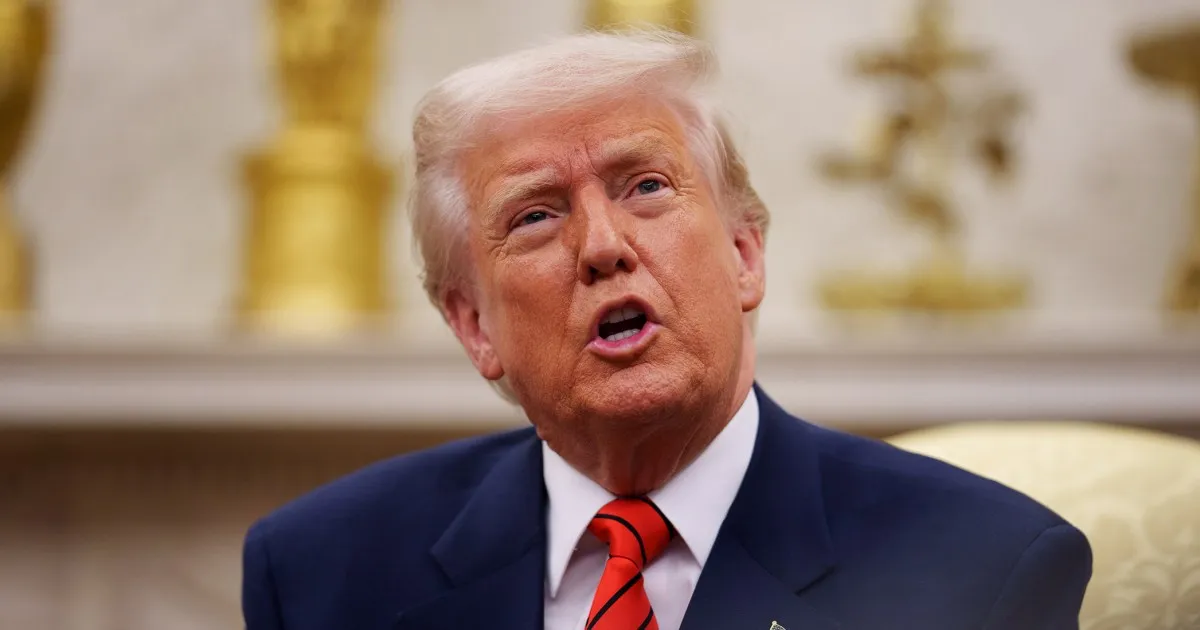
In a stunning development, the renowned law firm Paul Weiss announced on Thursday that it has agreed to provide Donald Trump’s administration with $40 million in complimentary legal services for initiatives supported by the president. According to a social media post from Trump, the firm will also eliminate any internal diversity, equity, and inclusion (DEI) policies. This move comes after Trump rescinded an executive order that targeted Paul Weiss, which could have severely impacted the firm’s business operations.
The decision has sent shockwaves through the legal community, prompting immediate backlash. Rachel Cohen, an associate at the prestigious law firm Skadden, Arps, Slate, Meagher & Flom LLP, described the announcement as a "final straw." That same evening, she circulated an email within her firm, stating her intention to resign unless the firm took a firm stance against the Trump administration, particularly in relation to the targeting of DEI programs.
“This is not what I envisioned for my career or my evening, but Paul Weiss’s capitulation to the Trump administration on DEI, representation, and staffing has compelled me to act,” Cohen expressed in her email, which quickly gained traction on social media. She emphasized the urgency of the situation, stating, “We do not have time. It is now or it is never, and if it is never, I will not continue to work here.”
Cohen shared her concerns with NBC News, revealing that her primary consideration was not about potential consequences for her career but rather the broader implications of her actions. “Is this going to be unhelpful to the aim that I am working towards, which is the protection of not just my colleagues, but the rule of law in the United States?” she questioned. With her email access suspended shortly after sending her resignation notice, Cohen acknowledged the challenges posed by the rapid pace of the Trump administration's actions.
“They move so quickly that you have to make judgment calls — that can cost you a lot — based on what you think is going to happen next,” she explained. Cohen articulated her belief that a “coup” is occurring in America, and lamented that the nation’s most powerful attorneys had not united to send a decisive message against Trump’s actions.
The reaction to Paul Weiss’s decision has been overwhelmingly negative among lawyers. One attorney from a major firm in Washington described the agreement as “as craven and despicable a decision as you will find,” warning that it could intimidate other law firms and deter them from publicly opposing the administration.
Despite ongoing discussions about filing an amicus brief in a case involving Perkins Coie against an executive order from Trump, a collaborative effort among law firms to publicly challenge the administration has yet to materialize. Many lawyers attribute their reluctance to engage with the administration to commercial interests, particularly fears of losing clients.
Another attorney emphasized that firms are prioritizing the happiness of their management teams over the welfare of the country. George Conway, a vocal critic of Trump and a former partner at a prominent law firm, has also underscored the moral obligation of legal firms to defend the system that enables their success.
“These law firms are now so profit-driven that they are putting their own economic interests above the system,” Conway stated, calling this behavior morally appalling and self-defeating.
At the Justice Department, the repercussions of the current political climate are palpable, with attorneys facing job insecurity if they do not align with the administration's priorities. “Everyone is now constantly looking over their shoulder, wondering if they say the wrong thing... they could lose their job,” one Justice Department attorney revealed.
Mark Zaid, a Washington attorney focused on national security law, expressed strong emotions regarding the Paul Weiss decision, describing it as both “intensely angering” and “pathetic.” He drew parallels between the targeting of law firms and a famous quote from Shakespeare’s Henry VI, highlighting the historical context of lawyers as protectors against authoritarianism.
As the legal community grapples with these developments, Cohen’s actions and sentiments resonate as a call to arms for attorneys to reconsider their role in preserving the rule of law in an increasingly turbulent political landscape.